Health and Social Care Courses

Fee Trial
Register for your account today and enjoy the first module of each of our courses for free
Need more info.
Contact us for more information or help with your training requirements.
Returning to work?
Get all your staff health and safety qualifications and skills in line with legislation.

Video Based Training
One on one tutor led videos is an integral part of our training delivery model. We found that our students relate better to videos than to other forms of online learning.
Our online video based training format offers a high-impact, high-engagement learning environment wich leads to a high recall rate.
All our training videos are available anywhere, anytime and on any device with an internet connection. 24/7

Infection Control
£25.00 / Candidate
Course Duration: 60 Min
Modules: 7
CPD
More Details
Infection prevention and control measures aim to ensure the protection of those who might be vulnerable to acquiring an infection…. Ok but why is this important?
Well every year at least 300,000 people develop a Health Care Associated Infection. This has a huge impact on the patient, the staff and the institution it occurs in. Whereas if there is good infection prevention and control, patients will have better health and more independence.
This course will start by defining infection prevention and control and explaining the impact of good and bad infection control. It then goes into detail about, the legislation that applies to infection control, the different types of microorganisms, how bacteria are transmitted, the chain of infection, and much more.

Introduction to the Safe Handling of Medicines
£25.00/Candidate
Course Duration: 60 Min
Modules: 7
CPD
More Details
This Introduction to the Safe Handling of Medicines course will start by explaining the key terminology used when handling medicines. It then goes into detail about the roles of the people involved, some of the different groups of medicines, providing different levels of support to patients, infection control, label interpretation and much more.
What you will learn:
- Introduction
- Terminology explained
- The roles of those involved, legislation and licensing
- Groups of medicines
- Levels of support and routes of entry
- Infection Control and equipment for dispensing
- Label interpretation, record keeping and The Seven Rights

Handling Information in a Care Setting
£25.00/Candidate
Course Duration: 20 Min
Modules: 2
CPD
More Details
When working in a care setting it is so important to build positive relationships with care users. Confidentiality and the correct handling of personal information are vital for trusting relationships and a breach in this may lead to a service user becoming unwilling to cooperate with their care providers.
This course introduces the concept of handling information in care settings. At the end of the course you will understand the need for secure handling of information, and you will know how to access support if you have any questions regarding access to information. The course will cover the important role confidentiality plays in developing trusting relationships with the people in your care and it will define key terms such as ‘need to know’ and ‘consent’. It also touches on the legislation that is in place relating to the handling and storing of information and the obligations each person has under these laws.

Paediatric First Aid
£35.00/Candidate
Course Duration: 115 Min
Modules: 9
CPD
More Details
Course Description
First aid covers a multitude of skill sets and responses to many medical situations. Its primary aim is to provide immediate medical care and treatment that will either resolve the situation (in less serious ‘everyday’ cases) or provide an essential short-term emergency stop-gap until professional medical assistance is in place.
The aim of this course is to equip you with the theoretical knowledge, skills and confidence you need to deal with paediatric first aid situations. It covers all the key topics including emergency planning, assessing a situation, basic Life Support, CPR, shock, fractures, bleeding and a range of other minor illness and injuries.
Please be aware that having a theoretical knowledge on its own is not enough to be considered competent in paediatric first aid and practical demonstration in some areas is required to complete this training. Please contact us to arrange this.
Target Audience
Paediatric first aid is a skill that would be useful for anyone that works with children and infants. This includes those working in nursery, school and pre-school environments, as well as professional childminders, club leaders and sports coaches.
Advantages
Although it can sometimes be difficult in what are often emotionally charged circumstances, First Aiders need to remain as calm and objective as possible, especially when there is a medical emergency. Having the training and knowledge to deal with the situation effectively. The online format allows you to progress through the modules at your own speed, and at times when it’s convenient for you to absorb the information.

Diabetes Awareness
£25.00 / Candidate
Course Duration: 45 Min
Modules: 3
CPD
More Details
Diabetes is a serious lifelong health condition that occurs when the amount of glucose, or sugar, in the blood is too high. If left untreated, high blood glucose levels can cause serious health complications.
Diabetes can develop in anyone at any point in their life although there are certain groups and age ranges where it is more common. There are a range of symptoms that could indicate that someone had Diabetes, these range from excessive thirst to feeling more tired than usual. It is believed that up to 26% of residential and nursing home residents have Diabetes so being able to recognise the symptoms and knowing how you can help them to manage the condition is essential.
This course is aimed at people working in the health and social care sector and will provide an overview of the condition, the common symptoms that might indicate someone has diabetes, methods of diagnosis, some possible treatments and common complications that can affect those with the condition.

Autism Awareness
£25.00/Candidate
Course Duration: 30 Min
Modules: 4
CPD
More Details
Course Description
Autism is a lifelong developmental disability that affects how a person communicates with and relates to other people around them. According to the National Autistic Society, autism affects about 700,000 people in the United Kingdom, which equates to 1 in 100 of the population and the number of children being diagnosed with the condition is continuing to increase.
This course will provide you with an understanding of what autism is and how it affects a child’s daily life. It will touch on what factors contribute towards a child developing autism as well as some of the typical behaviours associated with it and how you can provide effective support for those with the condition. It also discusses what happens during the diagnosis process, some of the intervention methods that can help manage the condition and suggests some simple adaptations you can make to improve a child with autism’s day to day life.
Target Audience
People working in adult and childcare environments. Those working in all areas of care may come into contact with people who has Autistic Spectrum Disorders ASD. Although the course focuses on children with autism, having an awareness of the condition and how best to provide support to someone with ASD will be of use to anyone who interacts with and cares for children and adults as part of their work.
Advantages
Having a knowledge of the typical behaviours and challenges associated with ASD can equip you to identify these and act in a supportive way. CPD approval means that this course can be used by those that need to prove they are continually developing themselves.
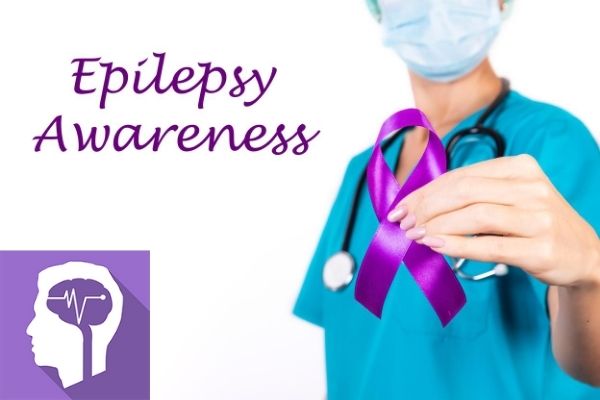
Epilepsy Awareness
£25.00/Candidate
Course Duration: 30 Min
Modules: 3
CPD
More Details
Course Description
When introducing epilepsy, we must first recognise that there are around 40 different types of seizures. Statistics show that one in five people will have a seizure at some time in their life although only some of these will be caused by epilepsy.
Epilepsy is a neurological condition that affects the brain and the nervous system and is covered by the Equality Act 2010. The condition can affect people for only a portion of their life, or it can be lifelong. Because of the varied nature of the condition an awareness of epilepsy and the actions you can take if you are present during a seizure is incredibly useful for those who work in health and social care.
This course will give you an overview of epilepsy. It lists the methods of diagnosis, what a seizure is and how the brain can be affected. It will introduce some possible seizure triggers and describe what to do when someone has a seizure. It will also discuss some of the treatments offered to people with epilepsy and provide practical advice on what you can do if you witness someone having a seizure.
Target Audience
This course is aimed primarily at people working in the care sector with children or adults however anyone who would like to expand their knowledge or understand what to do if they see someone have a seizure should take this course.
This course is also a great one to do alongside first aid training as it expands on the information relating to seizures that is usually taught as part of first aid.
Advantages
Having a knowledge of Epilepsy and the different types of seizure and the actions you can take if you are present during a seizure will allow you to take a proactive role in ensuring the person is kept safe and as comfortable as possible.
CPD approval means that this course can be used by those that need to prove they are continually developing themselves.

Mental Health Awareness
£25.00/Candidate
Course Duration: 25 Min
Modules: 3
CPD
More Details
People often equate the words mental health with mental illness and there are many definitions of what mental health actually is. Mental health issues can happen to anyone despite social background, intelligence, gender or other factors.
This course explains the difference between mental health and mental illness. It covers the symptoms of several the most common mental illnesses so you will know what to look out for or what to expect if you are working with someone with one of these conditions. As well as providing some practical advice on how you can work effectively with those affected by these conditions.
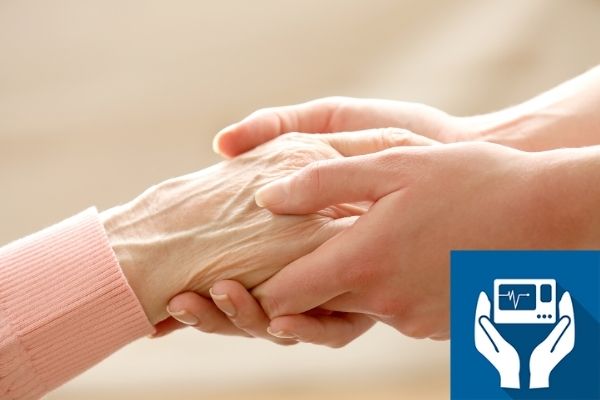
End of Life Care
£25.00 / Candidate
Course Duration: 25 Min
Modules: 5
CPD
More Details
End of life care should be several things, compassionate, cost effective, holistic and effective. There are usually a number of people involved in the care of people at the end of their life and it can be a difficult process to be part of.
This course will provide you with information about what to expect, how to handle some of the emotions associated with this time, and working with the other professionals involved in end of life care.

Person-Centred Care
£25.00/Candidate
Course Duration: 45 Min
Modules: 6
CPD
More Details
What do we mean by Person Centred Care? Well the term originated in the 1940s and proposed taking a holistic view of service users in care settings. This means getting to know the person and then tailoring their care as much as possible to meet their specific needs. Person centred care is now a key principle outlined in current legislation and it plays an important part in the standards that they set out which must be followed by all care professionals working in this country.
This course will give you an understanding of person-centred approaches for care and support, and how to implement a person-centred approach in an adult social care setting. It starts by explaining what we mean by person centred care and where this term originated. It then goes on to analyse the values represented by person centred care and explains why care should be as much as possible tailored to each service user. Finally it will give you an overview of care plans, daily reports, the importance of obtaining consent and much more.

Sharps Awareness
£25.00/Candidate
Course Duration: 55 Min
Modules: 6
CPD
More Details
Course Description
There is a common misconception that sharps injuries are only of concern to medical and care staff. However it is not uncommon for people in other industries such as waste disposal to come into contact with used sharps.
In this course we will start by looking at some statistics relating to discarded needles, then define ‘sharps’ and look at the different types that can be found in ‘sharps litter’, ranging from needles, syringes and scalpel blades to broken glass, knives, scissors and nails.
It then covers the primary and secondary risks from sharps. It will look at the responsibilities of employers and how they must use risk assessment to ensure workers safety, as much as possible.
Then, the course will take a detailed look at Hepatitis B, Hepatitis C, HIV and Tetanus.
There will be a section on the Chain of Infection, helping you to understand how an infection gets passed on, and what steps can be taken to break the chain and stop the process. It will look at the probability of picking up an infection from a needlestick injury, and the factors that can affect this. It is important to always handle discarded sharps safely so the course will take you through the equipment you need, including litter pickers, forceps, disinfectant sprays and gloves, along with the correct techniques you should employ to avoid injury. This subject will be further expanded on by detailing the correct sharps handling procedures, including how to dispose of discarded sharps safely, how to remove disposable gloves to minimise cross-contamination, and correct hand washing procedures.
Finally, it will cover how to report discarded sharps and the correct procedures to follow if you’re unlucky enough to receive a sharps injury.
Target Audience
This course is aimed at anyone who may come into contact with sharps waste whilst performing their day to day working activities. This ranges from people working in healthcare to those in waste disposal with a wide range of other.
Advantages
Knowledge of the dangers associated with sharps, safe handling techniques and use of appropriate PPE will help you to protect yourself from the dangers. CPD approval means that this course can be used by those that need to prove they are continually developing themselves.
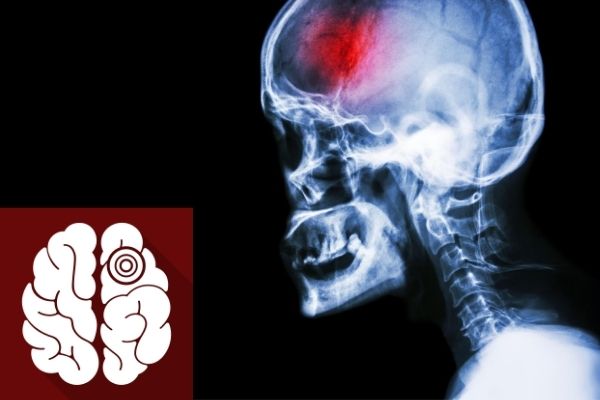
Stroke Awareness
£25.00/Candidate
Course Duration: 55 Min
Modules: 4
CPD
More Details
Course Description
Strokes are the fourth single leading cause of death in the UK, as well as a leading cause of disability. Being aware of the causes and symptoms will help you act fast in a situation where you suspect someone is having a stroke and provide them with the best chance of receiving the treatment they need and minimising the long-term impact of the condition.
This course will cover the types of strokes, the symptoms, and risk factors. It will also cover the treatment options and the longer-term impact of the condition.
Target Audience
This course is aimed primarily at people working in adult care as they are likely to be working closely with people that are most at risk of having a stroke.
Advantages
Having a knowledge of the symptoms of stroke can equip you to identify these and act quickly if you are in contact with someone who has a stroke. The quicker medical treatment can be administered to the person suffering a stroke the better the outcome is likely to be.

Dignity and Privacy
£25.00 / Candidate
Course Duration: 50 Min
Modules: 7
CPD
More Details
There are two crucial attributes you must have when working with people in a caring, supportive environment. First, all service users must be treated with dignity and the second crucial attribute is privacy.
The course will start by defining dignity and privacy within the healthcare sector, and will explain how the two are quite often linked. It will then go on to give you a range of useful professional tips about setting up the right working relationship with your service users, and discuss some of the issues that can arise when dignity and privacy are not respected.

Dementia Awareness
£25.00/Candidate
Course Duration: 25 Min
Modules: 4
CPD
More Details
Dementia is used to describe the symptoms that occur when the brain is affected by specific diseases and conditions. Dementia is a chronic progressive problem of cognition – which is failure of the brain’s functions. IT affects people at different stages of life, it affects different parts of the brain and it affects it at different speeds.
This course is intended to give you an overview of the common types and symptoms of dementia as well as going into how it can affect the brain in different ways. It also covers strategies to use with clients with dementia and dealing with challenging behaviour. The course is intended for anyone who works with or around people that may be suffering with dementia.
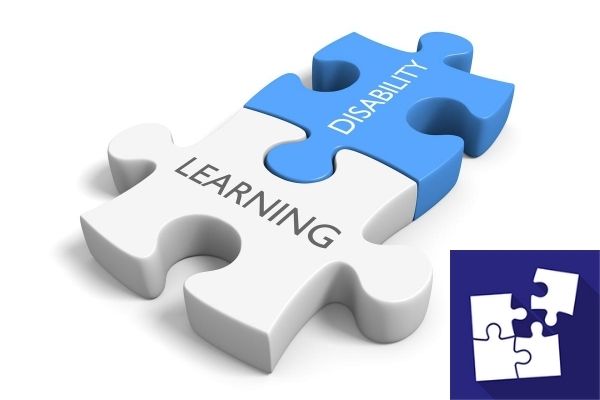
Learning Disability Awareness
£25.00/Candidate
Course Duration: 50 Min
Modules: 8
CPD
More Details
Learning disabilities, however they are acquired, are lifelong. They are neurological disabilities and as such affect how an individual understands and remembers information, how they learn and communicate. People can be born with learning disabilities or they may acquire them later in life.
There are many differing types of learning difficulty and they can exhibit in many different ways and with many different characteristics.
This course will start by giving you an overview of some of the common types and causes of learning disabilities and how they affect people. It will touch on how a person-centred approach to care will get the best results and look at how management must perform, and at the needs of the individual. It will also discuss overcoming the stigma attached to learning disabilities and much more.
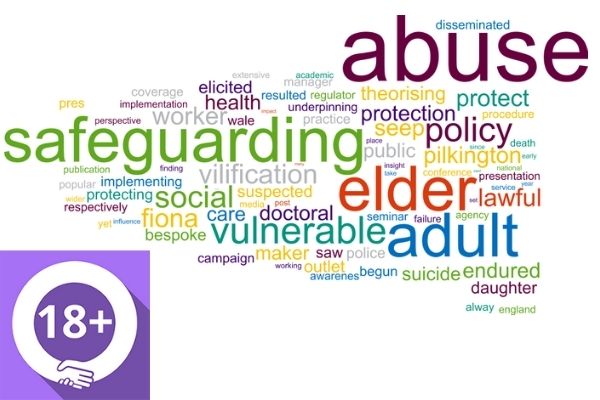
Safeguarding Adults
£35.00/Candidate
Course Duration: 75 Min
Modules: 5
CPD
More Details
Our Safeguarding courses have been created because, first and foremost, each and every one of us has basic human rights. Chief among these is the right to be healthy, happy and treated well, regardless of race, age, gender or location. When these rights are abused in some way it’s wrong, and it is therefore vital that guidelines, policies and procedures are followed to enable everyone, without exception to live a life in which these basic values and rights are maintained and upheld.
This course is aimed at anyone who has a duty of care for, or comes into contact with, adults in need of care and support, either as a paid professional or a volunteer. This includes, but isn’t limited to, those that work in domiciliary care, the NHS, community centres, prisons or with a family member at home, and sets out the roles and responsibilities everyone must undertake to protect an adult’s right to live in safety, free from abuse and neglect. You and the organisation you work for must take appropriate and proportional measures necessary for the protection of adults in your care, while still ensuring they are supported and empowered to have control over how they want to live their lives and this course can bring you one step closer to being able to do this.
This means that whatever the circumstance, you and the organisation you work for must take appropriate and proportional measures necessary for the protection of adults in your care, while still ensuring they are supported and empowered to have control over how they want to live their lives.
During this course you will hear many facts, figures and details surrounding the risk to adults in need of care and support, the types of abuse suffered and key safeguarding legislation put in place to minimise the abuse of adults with care and support needs. By the end of this course, you will have learned a better understanding of safeguarding principles and be able to apply them to your role.
This includes being able to define the key terminology in relation to safeguarding; identify the principle laws that relate to safeguarding and why they have been put in place to minimise abuse; recognise and respond to the ten types of abuse suffered by vulnerable adults; identify and report concerns of abuse or neglect; describe your role, responsibilities and boundaries; ensure people are supported and encouraged to make their own decisions and give informed consent, and finally manage the environment to minimise the risk of abuse.

